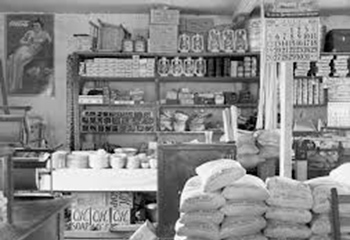In 1952, 23-year-old Lou Kliman, who grew up in McCreary, Man., a small town 250 kilometres northwest of Winnipeg, was in New York trying to launch a career as an actor on Broadway. Kliman, who passed away on Sept. 12 at age 87, was a natural showman. Charismatic and outgoing, he possessed the acting skills, humour and chutzpah to have made it big. He was truly, as his children say, “a force of nature.” (Disclosure: Kliman was also my cousin.)
Then, red tape and family obligations intervened.
While in New York, Lou met Estelle Kravitz, a Brooklyn girl, the daughter of a Canal Street jeweller, and fell in love. At the time, U.S. immigration laws made it next to impossible for a non-U.S. citizen to remain in the country without full-time employment. As a struggling actor, that was difficult for Kliman.
His father, Meyer, an immigrant from Mezirich in Poland, died, leaving Lou’s mother, Necha, to operate the family’s general store with the help of his siblings.
After Lou and Estelle were married, they moved to McCreary in 1953 – despite her parents’ initial opposition about losing their daughter to the backwoods of Manitoba – to take over the store. They intended to work in McCreary for a few years and try to find a buyer for the business. They ended up staying until 1962 and raising their family there.
Soon after Kliman’s homecoming, his friends in town wagered that he and Estelle would be divorced in six months. Estelle, however, was a woman bursting with enthusiasm and passion. She took to McCreary and her new life as the wife of a storekeeper, embracing the community and its various activities, and the community, in turn, embraced her. Neither of them had any regrets about remaining in the country. Business in the store improved and, as attitudes gradually changed in Manitoba as well as in Canada, no one cared whether the family was Jewish or not.
Meanwhile, Kliman managed to continue his show business career, travelling back and forth to Winnipeg to appear on CBC television and in local dramatic productions at the outdoor Rainbow Stage and the Little Theatre, where he worked with John Hirsch.
In 1996, he starred as “Reporter No. 3” in the Adam Sandler movie Happy Gilmore. By then, he had been in Winnipeg for more than two decades and was the co-owner of Standard Knitting, an international garment company that became known for its Tundra sweaters (Bob Hope and Ronald Reagan were fans).
In McCreary, the Klimans were part of a unique Canadian prairie phenomenon: the Jewish country store owner. In his works on the history of the Jews in Manitoba published in 1961, Rabbi Arthur Chiel estimated that in the 1920s, “Jewish community merchants could be found in at least 118 towns and villages in Manitoba.” Many more were also in Saskatchewan and Alberta. Meyer Kliman’s extended family, for instance, all operated general stores in rural towns within driving distance of each other. The cousins would gather on holidays and have fond memories of their time together.
The Jewish storekeepers were supplied with groceries and dry goods from friendly Jewish wholesalers in Winnipeg and were helped with initial financing by Jewish entrepreneurs. As the lone Jews in these towns, the families faced numerous challenges, and most eventually relocated their children to Winnipeg so that they could continue their education and find Jewish spouses. Anti-Semitic incidents occurred, but for the most part, the families were integrated into the social life of McCreary, Holland, Portage la Prairie and other locales.
Life wasn’t always easy for Jews in the Prairies. Kliman’s bar mitzvah, for example, was held in Portage la Prairie’s tiny synagogue. When he arrived for the prayers, there were only nine men present. The cantor told him he would have to find one more man to complete the minyan necessary to proceed with the service. “I had to knock on doors of stores,” he recalled. “I had to say to them: ‘Would you please come to my bar mitzvah.’” Finally, one elderly man consented, and Lou had his bar mitzvah.
Allan Levine’s next book, The Bootlegger’s Confession, a new Sam Klein Mystery, will be published in October.
